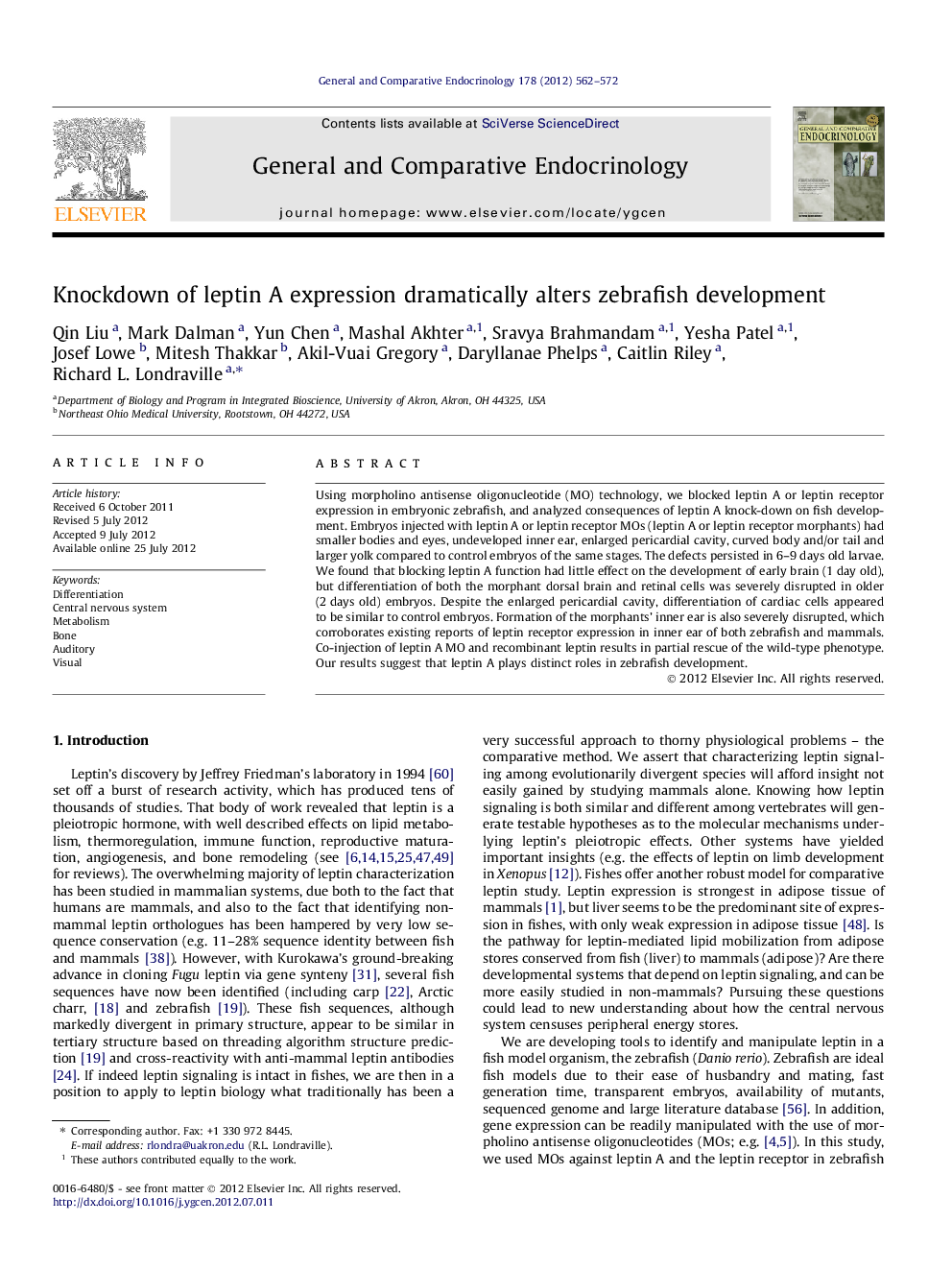| Article ID | Journal | Published Year | Pages | File Type |
|---|---|---|---|---|
| 2800618 | General and Comparative Endocrinology | 2012 | 11 Pages |
Using morpholino antisense oligonucleotide (MO) technology, we blocked leptin A or leptin receptor expression in embryonic zebrafish, and analyzed consequences of leptin A knock-down on fish development. Embryos injected with leptin A or leptin receptor MOs (leptin A or leptin receptor morphants) had smaller bodies and eyes, undeveloped inner ear, enlarged pericardial cavity, curved body and/or tail and larger yolk compared to control embryos of the same stages. The defects persisted in 6–9 days old larvae. We found that blocking leptin A function had little effect on the development of early brain (1 day old), but differentiation of both the morphant dorsal brain and retinal cells was severely disrupted in older (2 days old) embryos. Despite the enlarged pericardial cavity, differentiation of cardiac cells appeared to be similar to control embryos. Formation of the morphants’ inner ear is also severely disrupted, which corroborates existing reports of leptin receptor expression in inner ear of both zebrafish and mammals. Co-injection of leptin A MO and recombinant leptin results in partial rescue of the wild-type phenotype. Our results suggest that leptin A plays distinct roles in zebrafish development.
Graphical abstractZebrafish embryos 6 days post fertilization. Embryo on right was injected with an anti-leptin morpholino oligonucleotide within 20 min of fertilization. Sb = swim bladder, pc = pericardium, tr = trunk.Figure optionsDownload full-size imageDownload as PowerPoint slideHighlights► Antisense morpholino oligonucleotides reduce leptin signaling in zebrafish embryos. ► Morphants have large yolk, small eyes, kinked tails, and much reduced semicircular canals. ► The same phenotype results from knocking down its receptor. The knockdown can be rescued via co-injection with recombinant zebrafish leptin. ► Leptin signaling is required for normal development in zebrafish embryos.
